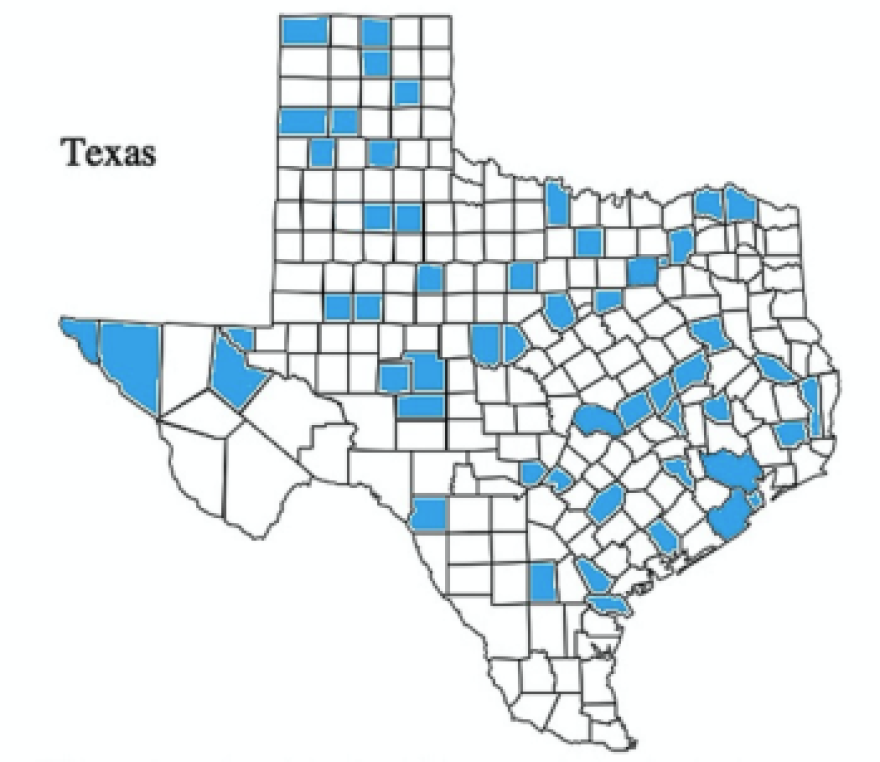A left-leaning grassroots organization called the East Dallas Persistent Women released a report last week finding that Healthy Texas Women — a state program intended to provide low-cost women’s health services — is riddled with errors on its website.
The program’s “Find a Doctor” tool lists numerous health care providers across the state that don’t actually participate in the program, making it more difficult for women to find physicians who do. In addition, some of the providers are repeats, and several numbers direct callers to offices that don’t provide women’s health care services at all.
In a statement, a spokesperson for Texas’ Health and Human Services Commission, which oversees the Healthy Texas Women program, says the agency semi-annually verifies that each provider listed offers Healthy Texas Women services – and the agency will try to fix any inaccuracies. “Nothing is more important to us than making sure women have access to this care,” the spokesperson says.
Anice Greiner is a member of the East Dallas Persistent Women and one of the core researchers of the report, titled “Healthy Skepticism: The Inadequacy of ‘Healthy Texas Women’ in 2018.”
The EDPW’s report follows a 2011 decision in the Texas Legislature to allocate public funding away from Planned Parenthood, a decision which ultimately drove a quarter of the state’s low-cost family planning clinics, most of them unaffiliated with Planned Parenthood, to shutter. In the aftermath, the state launched the Texas Women’s Health Program and then Healthy Texas Women, as part of its efforts to provide comparable, low-cost care to women across the state.
The report also follows a 2015 report from NARAL, a nonprofit organization that advocates for reproductive freedom, which similarly found that women’s health providers listed under the Texas Women’s Health Program were also inaccurate. At the time, Greiner said her group was also concerned about the increasing number of maternal mortalities and repeat teen pregnancies in Texas.
Interview Highlights
Interview responses have been lightly edited for clarity.
About the report’s findings
Sixty-six percent of the providers listed on the site in the counties we did the survey in are not providers [of the Healthy Texas Women program] even though they are listed on the site. In urban areas, that percentage is even higher. In Dallas, it was 81.9 percent and in Harris County it was 70 percent that were not providing. What we found in rural counties was that a very large percentage of them did not have providers at all.

How the data was collected across 54 counties
We were very careful to do a large enough random sampling. After we had come to a random list of zip codes, from El Paso to Harris County and all the way down to southern Texas, we went to the Healthy Texas Women website, pulled up each one of those zip codes and pulled up a list of the providers that was within five miles of each one of those zip codes and then we began making phone calls.
We asked, “Do you accept the Healthy Texas Women program?” and if the answer was “yes,” then the questions were: “Do you provide pap tests?” “Do you provide breast exams?” “Do you provide STD testing?” “Do you provide contraceptives?” These were just to make sure they were providing what the program said they were providing.
One of the things that we were kind of surprised about was the fact that you have providers listed that were MRI clinics, administration officers. There was just a variety of providers listed that have nothing to do with providing women’s health care.
How the state’s defunding of Planned Parenthood mobilized them
What happened as a result of that was that 82 clinics were closed across the state. That’s 25 percent, which made it impossible for women to get the health care that they needed. It made places in Texas where there was no clinic within 200 miles for them to get to, so it was a catalyst.
How errors on the Healthy Texas Women site can have serious repercussions for women
If you’re in an area where you have a list of 25 providers and only one of them is providing services, that’s not doable, that doesn’t work for women in Texas. Something else that we found was that we would make phone calls and a lot of times we’d be on hold for 20-30 minutes at a time. If you’re a low-income person, you don’t have time to sit on the phone. Most of these ladies work and can’t give the amount of time that it would take to sit and hold. It’s just not making it where ladies can get the care that they need.

On being a openly left-leaning group
The report was done very scientifically. We were very careful to be sure that the group that we pulled was randomly chosen and we were very careful not to insert our political leanings into it. We had someone who does surveys to sound off and give us advice and be sure that our study was statistically random and that we were following the correct procedures.
What to do with this information
One of the things that we hope to do with this study is to go to the candidates who are out there now that will be running in November and give them this report so they now have a useful tool so they'll be able to advocate for women and women’s health in Texas.





